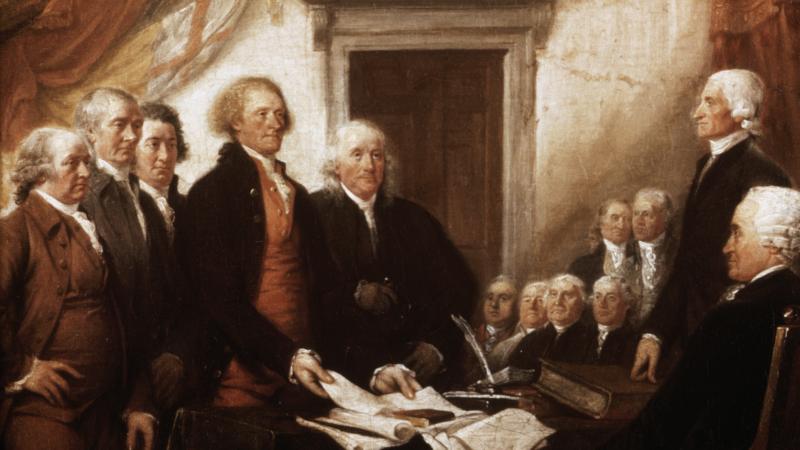GOP-led House intervenes on Bannon's J6 legal case, making good on Speaker Johnson's promise
This new intervention from the House undermines the justifications the original Select Committee used to issue the subpoenas and provide ammunition for Bannon's appeal.
The GOP-led House has quietly filed a rare intervention in Steve Bannon's contempt of Congress case, arguing the Democrat-led House January 6 Select Committee failed in its formation to follow chamber rules – invalidating the two subpoenas it served Bannon that he ignore and ultimately put him behind bars.
The House brief argues the select committee was improperly constituted and that neither then-Democratic Speaker Nancy Pelosi nor the committee leadership followed the directives of House Resolution 503, which established the committee.
The Amicus Curiae brief filed by the House General Counsel nine days ago fulfills a promise from Speaker Mike Johnson in June to intervene in the case.
Bannon, a former Trump White House political adviser, refused to answer two subpoenas from the committee, citing executive privilege.
He was convicted and sentenced under two charges of contempt of Congress.
The intervention of the House under Johnson, a Louisiana Republican comes as Bannon is appeals the case.
This new intervention from the House undermines the justifications of the committee's subpoenas and potentially provides ammunition for the appeal.
Bannon is serving a four month prison sentence and calls himself a "political prisoner."
“We're working on filing an amicus brief with his appellate work there in his case because the January 6 committee was, we think, wrongfully constituted,” Johnson said in June. “We think the work was tainted. We think that they may have very well covered up evidence and maybe even more nefarious activities."
You can read the amicus curiae brief below:
According to implementing resolution, the now GOP-led House argues, Pelosi was required to appoint 13 members to the committee, including five Republicans. However, only nine members were ever appointed.
Additionally, the House argues that according to the resolution, the committee was required to consult with its minority party ranking member before issuing a subpoena. However, the House argues that the committee never had a ranking member as defined by House rules.
The previous Congress under Pelosi argued that former GOP Rep. Liz Cheney was serving as the ranking member. However, she actually served as the Vice Chair of the Committee, which according to House Rules, constitutes a separate role.
















